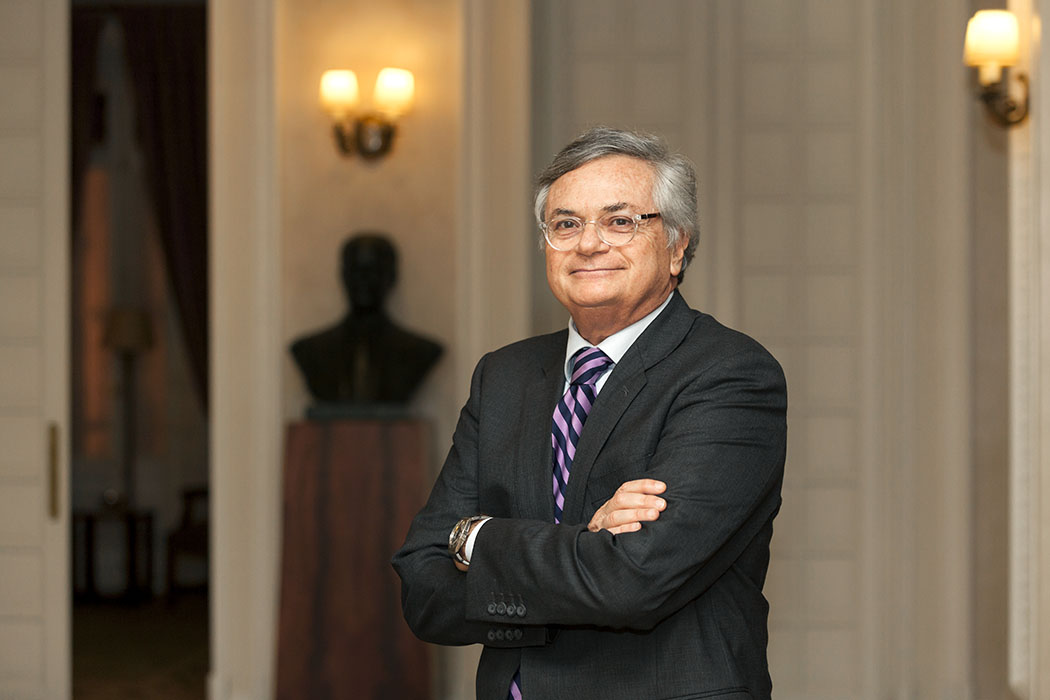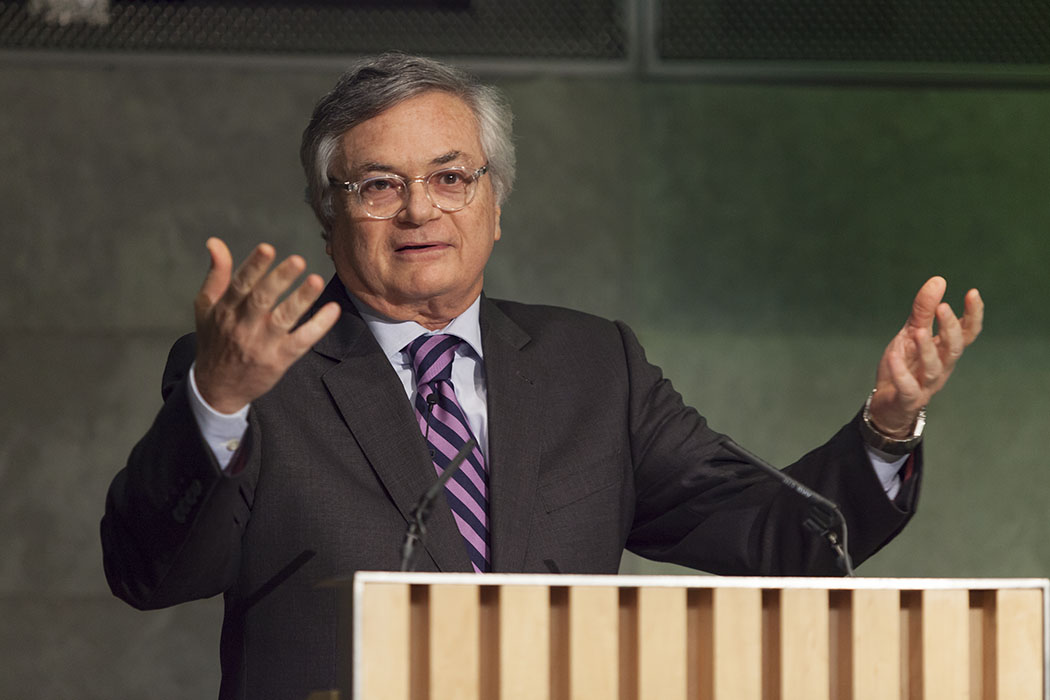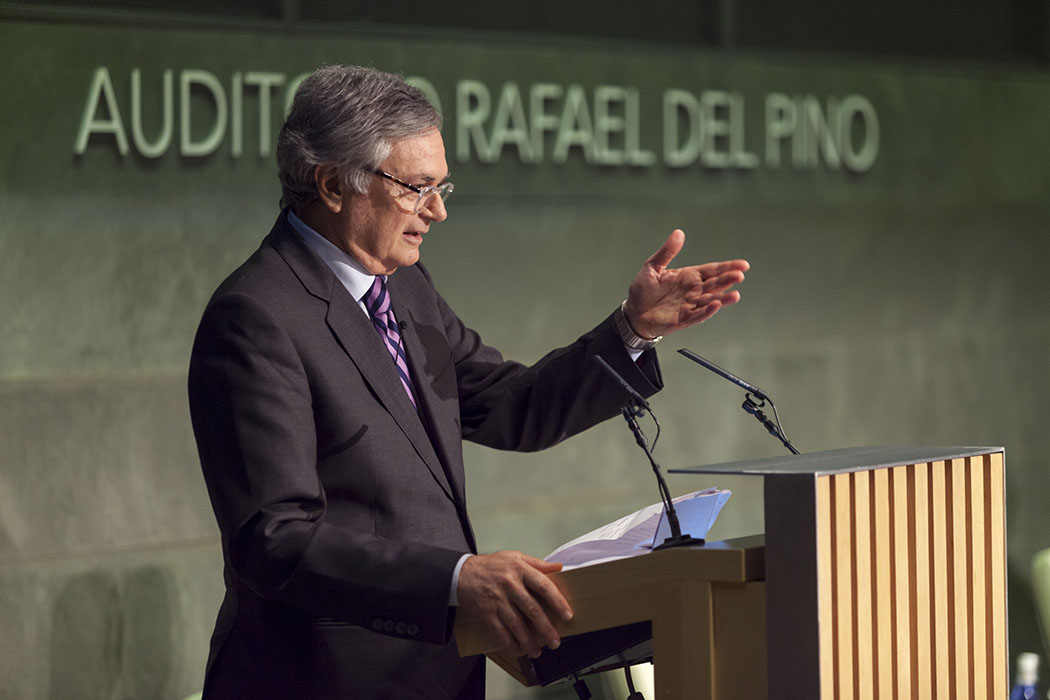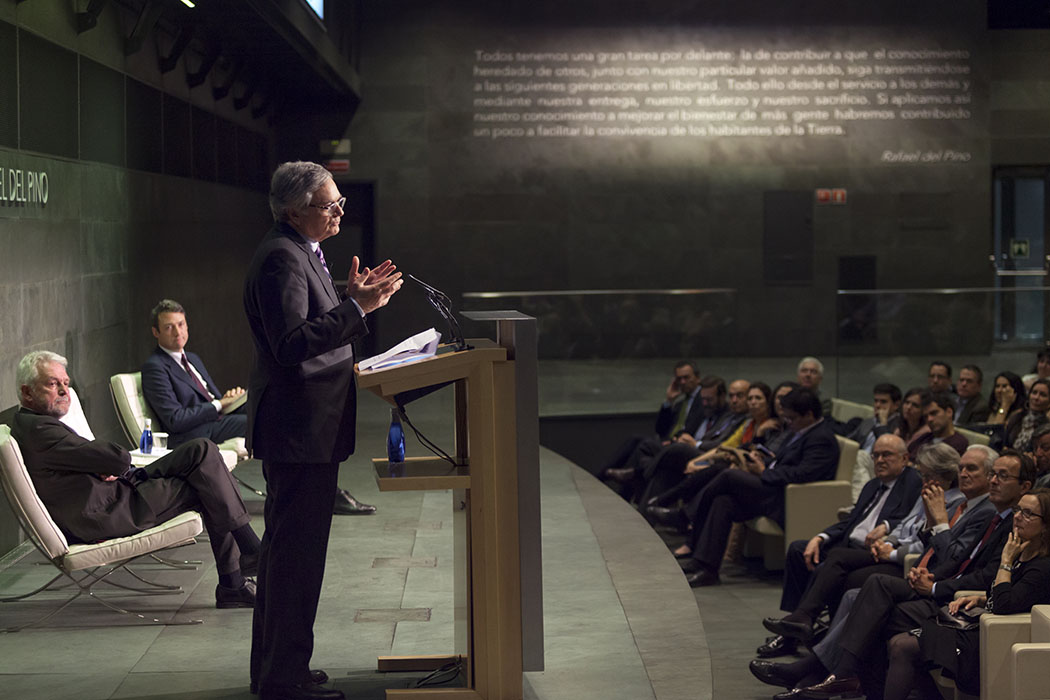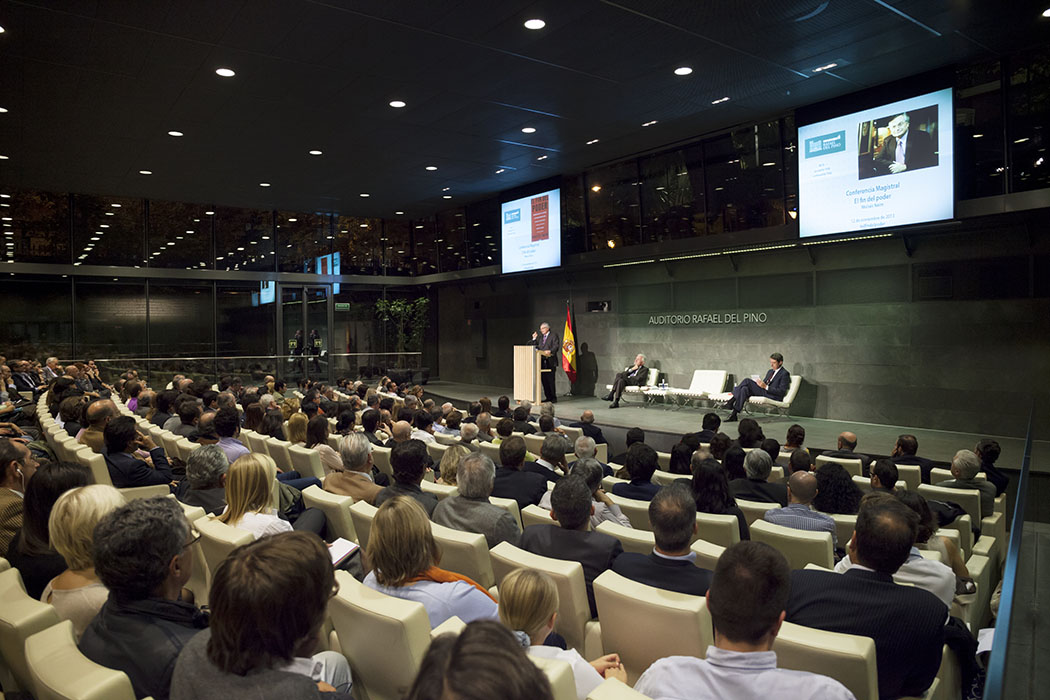On 12 November 2013, the Rafael del Pino Foundation organised Moisés Naím's Keynote Lecture "The End of Power".
Moisés Naím is a Senior Associate in the Department of International Economics at the Carnegie Endowment for International Peace in Washington, founder and president of the Group of Fifty (G50) and a member of the boards of Population Action International, the National Endowment for Democracy, the International Crisis Group and Open Society. He edited Foreign Policy for fourteen years, during which time the magazine won the National Magazine Award for General Excellence three times and is now considered one of the most influential publications in the world. Throughout his prolific professional career, Moisés Naím also held important positions in the public sector, such as Minister of Industry and Trade of Venezuela, Director of the Central Bank of Venezuela and Executive Director of the World Bank; he was also academic director and professor of business and economics at the IESA in Caracas.
Professor Naim is the author of numerous academic articles and more than ten books on international economics and politics that have received international recognition. He is the director and host of Efecto Naím, a weekly television programme on international issues broadcast in the United States and Latin America on NTN24/DirecTV as well as on several national channels in different countries. His weekly columns on world affairs are published by leading newspapers in Latin America, Europe and the United States (Financial Times, El País, La Repubblica, etc.).
In his latest work, titled after the lecture he will deliver at the Foundation, he analyses power and its mutation, a power that in recent decades has shifted from large disciplined armies to chaotic bands of insurgents; from giant corporations to agile entrepreneurs; from presidential palaces to public squares, increasingly more difficult to exercise and easier to lose. The iconoclastic energy of micro-powers, Moisés Naím points out, can topple dictators, end monopolies and open up incredible new opportunities, but it can also lead to chaos and paralysis; drawing on provocative new research and his experience in international affairs, he explains how the end of power is reshaping the world we live in.
